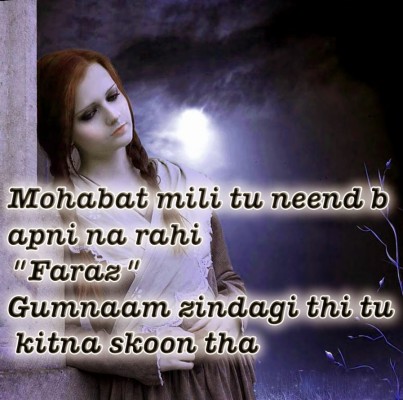
It’s an apt rubric, because both the colour red and the rose carry multiple meanings. The title is taken from a ghazal’s first line. At the same time, the poems selected for the book have a newness that can only be had by pouring out emotions that germinate in those soft recesses of the heart where grief resides. It has the usual flavour of diction steeped in classicism and some of the metaphors that he has used over the years.

With Baagh-i-Gul-i-Surkh, once again, the poet has come up with nazms, ghazals and devotional poetry of a literary quality that none of his contemporaries can match. Even the first reading of the collection will enable his admirers to claim that it’s a cerebral delight and an artistic treat for lovers of Urdu poetry. This is precisely the reason that the publishing of an Iftikhar Arif collection of poems often becomes a momentous literary occasion for the readers, in which they eagerly participate. Baagh-i-Gul-i-Surkh is his latest offering. For example, his ghazal- and nazm-writing in which Karbala is not the main subject is no less awe-inspiring. However, this fact seems to have upstaged his other literary feats. Arif has been able to accomplish that primarily because of two factors: his understanding and in-depth study of classical literatures, and his ability to use language with all its traditional trappings, without sounding trite.Īlthough this has been written about time and again in order to contextualise his poetic prowess, it has to be admitted that Arif has indeed effectively employed the metaphor of the tragedy of Karbala in contemporary locales. In Urdu poetry, carving your own niche is just as difficult as developing your own voice in modern English fiction. Warning your younger brother/sister against getting too deep in that casual college-affair? Use this couplet and get the message across, citing your own example of course!ħ.Iftikhar Arif is one of those handful of living Urdu language poets who have achieved greatness through their inimitable craft in his case, it is the art of storytelling in verse that is distinctly his own. Laga na dil ko kya suna nahi tune, jo kuch Meer ka aashiqui ne haal kiya (Where has selflessness taken me, I’ve been waiting for myself for long)Īpt for both negative and positive situations, this can be quoted anytime you feel lost and want people to know.Ħ. Bekhudi le gai kahaan humko, Der se intezaar hai apna Subah hoti hai shaam hoti hai, umra yoonhi tamaam hoti haiĥ. When someone comes to your rescue a little too late, you can always put on the literary hat and rattle out these lines.Ĥ. (O Mir, he came to my grave after I’d died My messiah thought of a medicine after I’d died) Baad marne ke meri qabr pe aaya wo ‘Mir’, Yaad aai mere Isa ko dawa mere baad’’ This couplet is unarguably the favourite for all those who’ve fallen in love in their life.ģ. (Every leaf and bud knows my situation, the flower doesn’t know but the whole garden knows it) Patta patta, boota boota, haal hamaaraa jaane hai, Jaane na jaane gul hi na jaane, baagh to saaraa jaane hai. Whenever we face a demanding situation, we quote Meer, often without even knowing!Ģ. This is perhaps the most-used couplet by Meer in today’s time. (It’s the beginning of Love, why do you wail Just wait and watch how things unveil) Ibtidaa-e-ishq hai rotaa hai kyaa, Aage aage dekhiye hotaa hai kyaa From cutting-edge socio-political commentaries to human relations, most works of this poet from the 18th century continue to be relevant even today.Īs Sunday marks the 302nd birth anniversary of Meer, we list ten couplets from the vast treasury of his poems and ghazals that are still relevant today, more than three centuries after they were written. They say there used to be a Mir in the past).”īorn in Agra on September 20, 1723, Meer is as important a milestone in Urdu poetry as Ghalib is, and the two have given us couplets and ghazals that will always feature on top of any poetry lover’s list of unforgettable works. “(You are not the only master of Urdu, Ghalib. Mirza Ghalib once said this about Meer Taqi Meer, another renowned poet of his time: “Reekhta kay tumhi ustaad nahi ho Ghalib, Kehte hain agle zamane me koi Mir bhi tha.


 0 kommentar(er)
0 kommentar(er)
